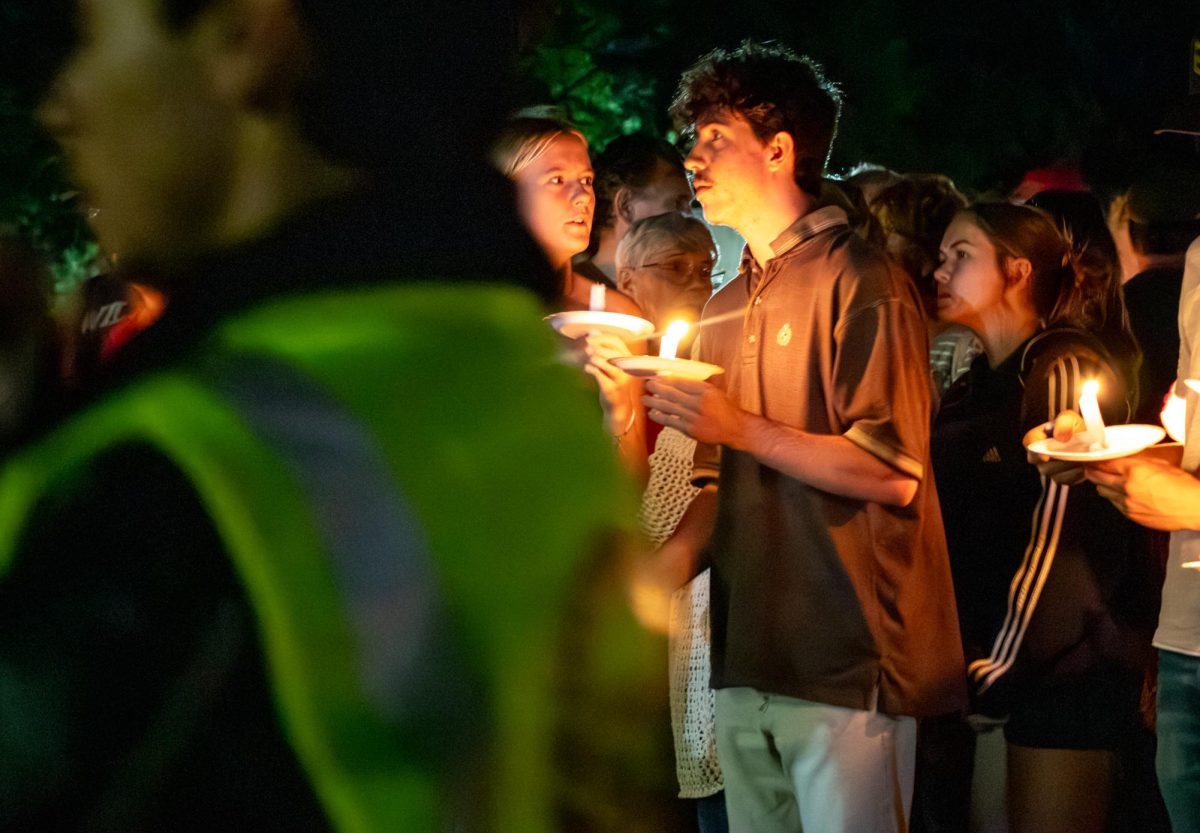Recycling reduces material consumption, but recyclables are too often thrown away.
At Colorado Mesa University (CMU), the recycling bins littering campus corridors promise a sustainable alternative. However, proper collection and disposal of these materials are highly suspicious.
The process of recycling intends to take materials heading for the bottom of a landfill and repurpose them into something new. This has the primary effect of reducing air pollution country-wide. According to the Environmental Protection Agency (EPA), recycling contributed to over 193 million metric tons of atmospheric carbon dioxide reduction in 2018.
In congruence with this decrease, the overall amount of waste generated has increased since the 1960s. According to the EPA, the amount of municipal solid waste generated in 2018 was equivalent to 292 metric tons.
Out of all the material, the “recycled” label only applies to 29 percent.
With the necessity for recycling increasing overtime, the industry has managed to create over 600,000 jobs, which translates to 37.8 billion dollars in total wages. The workers upholding this industry include everyone from drivers to sales representatives. At CMU, the split of these workers fall into Waste Management (WM) and CMU’s Facilities Custodial Services.
Due to these duties and dual responsibilities, the various bins across campus fall under different purview. Who it is that manages them is dependent on location and size.
Sustainability council member Ethan Otto shed some light on how to easily tell whether a bin is CMU custodial staff’s or WM’s.
“The larger bins outside, such as the dumpster and the green trash cans, are […] taken and recycled by WM. The smaller green bins inside the school buildings […] are not directly managed by WM. Instead, the bins inside the academic buildings are managed by CMU custodial staff,” explained Otto.
When it comes to WM managed bins, proper transportation from CMU’s campus to the recycling facility is standard for every kind of recyclable plastic, cardboard and paper. However, this is not the same story for CMU custodial staff managed waste, despite it being a part of the job purview for custodial services.
A previous member of CMU’s custodial staff, who would prefer to remain anonymous, recalled the administration’s approach to handling interior bins versus exterior bins. This member worked on campus for two years and left their position recently.
“During my time with CMU Custodial, I was often instructed to put recycling in the trash, a practice many custodians participated in due to the lack of resources and support,” stated the former custodial member.
Otto mentioned that the lack of support from administration described by the former custodian has been a topic of concern for the Sustainability Council this year. They are currently in the early stages of brainstorming a plan to try and resolve the issue. However, the council wants to ensure that their plan carefully considers both the present and future.
Otto also emphasized that whatever measures implemented cannot rely solely on volunteers going forward. They expressed that if volunteers were the only people fulfilling all future roles, it would only create an ineffective solution for an already fragile problem.
“With insufficient staff and time, [custodians] struggled to gather and sort materials properly, especially when separate containers weren’t provided. While some people [on the] custodial [staff] are passionate about making a difference, the administration’s lack of support makes effective recycling feel like a lost cause,” added the former custodial member.
This anecdote drives Otto’s point home. The new process, in both of their opinions, cannot rely on a handful of students or volunteers. To be long lasting, the solution needs to be more stable. A suitable plan will foster an efficient, reliable system for future generations at CMU to recycle their goods.
The university does implore other measures that aim for sustainable benefit. These include a geothermal heat pump system featured in the United States Department of Energy’s case study in 2023 and the compost facility on the CMU Tech campus. However, even in these more established initiatives, there is still room for improvement.
“We have had our own battle of composting bins not being allowed in the buildings because the custodial staff thinks that it will become too dirty and messy,” said CMU Compost Facility Manager Sarah Nunnally.
Amidst unraveling the conflicts in sustaining recycling and composting on campus, there are still glimmers of hope.
Mending these issues will fall to the future actions of the Sustainability Council, the CMU Composting Facility and more students interested in honest sustainability.
“Who knows, maybe people will start to think a little more about where their waste is going,” expressed Otto.
Student advocacy will provide a bridge between the Sustainability Council’s mission and the benefits of properly handled recycling.
Spreading the word about this issue can only help persuade administration to work with CMU students and staff to resolve this oversight.







